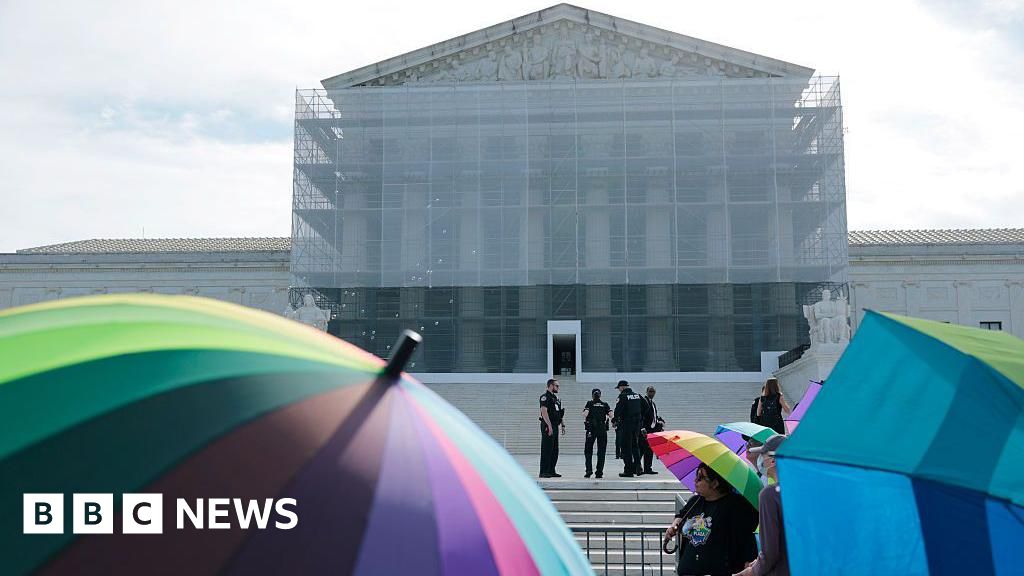US Supreme Court allows parents to opt out of lessons with LGBT books – BBC

US Supreme Court Ruling on LGBTQ-Themed Books and Parental Rights
Overview of the Supreme Court Decision
The US Supreme Court has ruled in favor of parents in Maryland who sought to opt their children out of reading books with LGBTQ themes in elementary schools. The decision was made with a 6-3 majority supporting the parents’ claim that the 2022 curriculum adopted by Montgomery County Public Schools infringed upon their religious rights.
Legal Basis and Court’s Majority Opinion
- The Court granted a preliminary injunction, allowing parents to opt out while the case proceeds.
- Justice Samuel Alito stated that the introduction of LGBTQ-themed books without opt-out options imposes an unconstitutional burden on parents’ free exercise of religion.
- The ruling emphasized that the parents demonstrated a likelihood of success on the merits, potential irreparable harm, and that an injunction serves the public interest.
Dissenting Opinion
- Three liberal justices dissented from the ruling.
- Justice Sonia Sotomayor warned the decision could cause “chaos for this nation’s public schools.”
- She highlighted the diversity of religious beliefs and the frequent exposure of children to conflicting messages in public education.
Context and Stakeholders
- The parents represent various faiths but uniformly oppose LGBTQ-themed content for their children.
- The First Amendment protects religious freedom, which the parents argue includes opting out of lessons they find objectionable.
- School policies previously allowed opt-outs for sex education for older children.
- Books involved include Uncle Bobby’s Wedding and Born Ready: The True Story of a Boy Named Penelope, featuring LGBTQ narratives.
- Parents do not object to these books being available in libraries, only to mandatory classroom reading.
School District’s Position
- Montgomery County Public Schools introduced the books to enhance diversity in children’s literature.
- In 2023, the district removed the opt-out option, citing classroom disruption and concerns over social stigma for LGBTQ students.
Reactions and Implications for Sustainable Development Goals (SDGs)
- Human Rights Campaign: Kelley Robinson criticized the ruling for marginalizing LGBTQ+ students, undermining their dignity and inclusion.
- Legal Representation: Eric Baxter described the ruling as beneficial for parental rights nationwide.
- SDG Alignment:
- SDG 4 (Quality Education): The ruling impacts inclusive education policies, potentially affecting equitable access to diverse learning materials.
- SDG 10 (Reduced Inequalities): The decision raises concerns about social inclusion and protection of minority groups, including LGBTQ+ youth.
- SDG 16 (Peace, Justice and Strong Institutions): The case highlights the balance between religious freedoms and rights to non-discrimination within public institutions.
Conclusion
The Supreme Court’s decision reflects ongoing tensions between religious freedoms and inclusive education, with significant implications for the Sustainable Development Goals related to quality education, equality, and justice. The ruling underscores the challenges in balancing diverse societal values within public schooling systems.
1. Sustainable Development Goals (SDGs) Addressed or Connected
- SDG 4: Quality Education – The article discusses curriculum content in public schools and parental rights regarding educational material.
- SDG 10: Reduced Inequalities – The inclusion and representation of LGBTQ themes in education relates to reducing inequalities and promoting social inclusion.
- SDG 16: Peace, Justice and Strong Institutions – The article involves legal rulings and constitutional rights, touching on justice and institutional frameworks protecting freedoms.
2. Specific Targets Under Those SDGs
- SDG 4: Quality Education
- Target 4.5: Eliminate gender disparities and ensure equal access to all levels of education and vocational training for vulnerable populations.
- Target 4.7: Ensure that all learners acquire knowledge and skills needed to promote sustainable development, including human rights and gender equality.
- SDG 10: Reduced Inequalities
- Target 10.3: Ensure equal opportunity and reduce inequalities of outcome, including eliminating discriminatory laws and policies.
- SDG 16: Peace, Justice and Strong Institutions
- Target 16.7: Ensure responsive, inclusive, participatory and representative decision-making at all levels.
- Target 16.10: Ensure public access to information and protect fundamental freedoms, in accordance with national legislation and international agreements.
3. Indicators Mentioned or Implied to Measure Progress
- SDG 4 Indicators
- Indicator 4.5.1: Parity indices (e.g., gender, vulnerable groups) in education enrollment and completion rates.
- Indicator 4.7.1: Extent to which education for sustainable development and global citizenship is mainstreamed in curricula.
- SDG 10 Indicators
- Indicator 10.3.1: Proportion of population reporting discrimination or harassment based on personal characteristics.
- SDG 16 Indicators
- Indicator 16.7.2: Proportion of population who believe decision-making is inclusive and responsive.
- Indicator 16.10.2: Number of verified cases of killing, kidnapping, enforced disappearance, arbitrary detention and torture of journalists, associated media personnel, trade unionists and human rights advocates.
4. Table: SDGs, Targets and Indicators
| SDGs | Targets | Indicators |
|---|---|---|
| SDG 4: Quality Education |
|
|
| SDG 10: Reduced Inequalities |
|
|
| SDG 16: Peace, Justice and Strong Institutions |
|
|
Source: bbc.com








